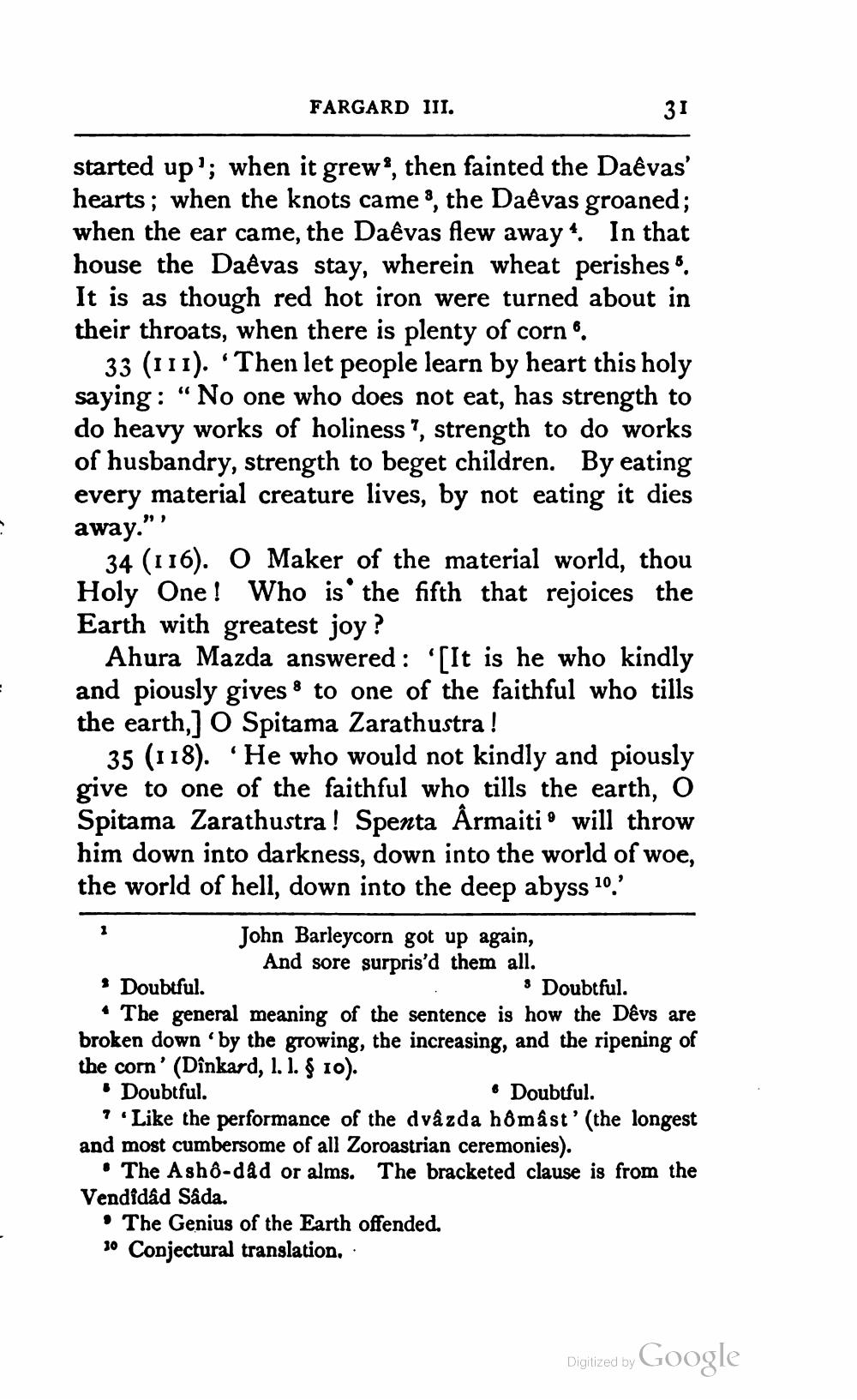________________
=
FARGARD III.
started up'; when it grew, then fainted the Daêvas' hearts; when the knots came 3, the Daêvas groaned; when the ear came, the Daêvas flew away. In that house the Daêvas stay, wherein wheat perishes". It is as though red hot iron were turned about in their throats, when there is plenty of corn.
33 (111). Then let people learn by heart this holy saying: "No one who does not eat, has strength to do heavy works of holiness, strength to do works of husbandry, strength to beget children. By eating every material creature lives, by not eating it dies away."
39 3
1
34 (116). O Maker of the material world, thou Holy One! Who is the fifth that rejoices the Earth with greatest joy?
8
Ahura Mazda answered: '[It is he who kindly and piously gives to one of the faithful who tills the earth,] O Spitama Zarathustra !
35 (118). He who would not kindly and piously give to one of the faithful who tills the earth, O Spitama Zarathustra! Spenta Armaiti will throw him down into darkness, down into the world of woe, the world of hell, down into the deep abyss 10.'
John Barleycorn got up again, And sore surpris'd them all.
31
• Doubtful.
The general meaning of the sentence is how the Dêvs are broken down 'by the growing, the increasing, and the ripening of the corn' (Dînkard, 1. 1. § 10).
• Doubtful.
3 Doubtful.
.
• Doubtful.
7 'Like the performance of the dvâzda hômâst' (the longest and most cumbersome of all Zoroastrian ceremonies).
The Ashô-dâd or alms. The bracketed clause is from the Vendidâd Sâda.
The Genius of the Earth offended.
10 Conjectural translation.
Digitized by
Google




